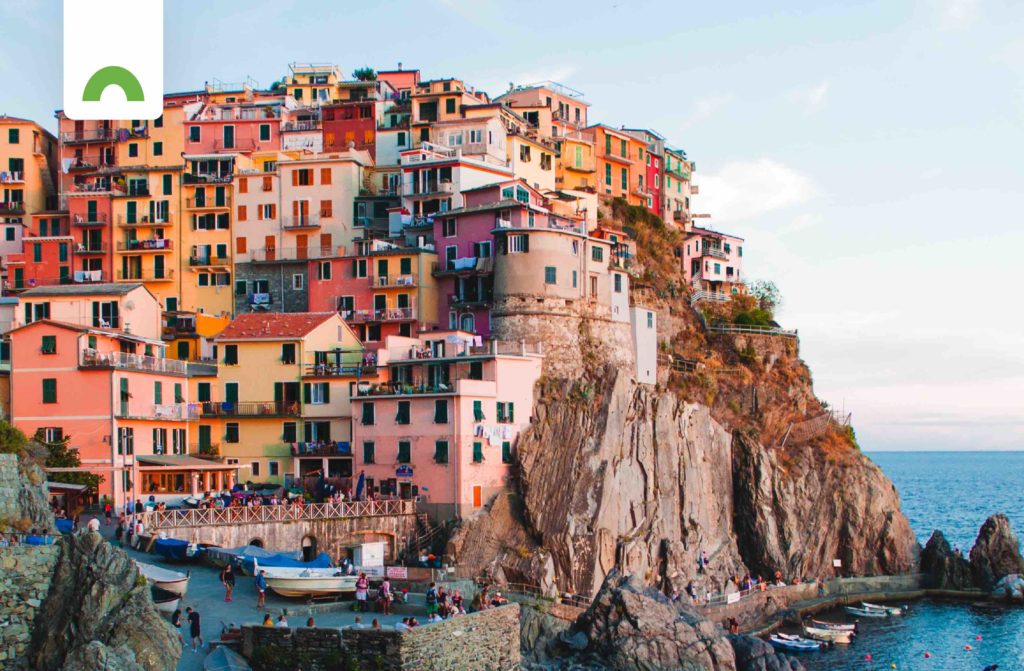The pent-up travel demand is real… but so is the rising cost of living.
Indications are that ‘revenge travel’ is surging – this is because people are intent on enjoying their freedom of movement after more than two years of restrictions. We have an opportunity to help them find their escape, despite inflation.
From restricted to revenge travel
While it’s an aggressive-sounding term, there is a strong, understandably emotional motivation behind revenge travel. It’s about an eagerness to make up for lost time and opportunity to travel, go sightseeing, be active outdoors, and interact with other people – including friends, relatives and locals in-destination. In other words, everything people couldn’t do for the two years (plus) that they lived under COVID-19 rules and regulations.
In addition to the threats the Coronavirus has posed to both physical and mental health, the world has seen an onslaught of natural disasters and geopolitical conflict – we’re learning that life is short, the natural world and the climate are at risk, and we should take nothing for granted.
As the world slowly begins to emerge from the pandemic, more countries are dropping travel restrictions. This invariably reduces health concerns and increases traveller confidence. Travellers are less hesitant to fly, and also more open to cruise and rail travel than before. For some people, lying low and working from home during the pandemic meant they were able to save a little more than usual – this emboldens their plans for travel, including paying extra for seat upgrades on flights so they can have a bit more distance from other passengers. Meanwhile, on the high end of the market, luxury travel will continue to increase and present strong prospects for travel companies.
The rising cost of everything
According to a Deloitte 2022 summer travel survey on reasons not to travel this (Northern hemisphere) summer, “44% [of US Americans] are concerned about finances”, more so than about health, when considering travel.
There are several contributing factors to the rising cost of living around the world: war in Europe; the impact of economic sanctions; the blockade on food distribution and other supply chain disruptions; and volatile climatic conditions. This has resulted in a perfect storm of financial challenges that affects millions of households worldwide.
The same economic turmoil affects travel and the cost of services, tours and accommodation, with fuel costs hitting record highs, exacerbated by staff and skills shortages in the tourism sector.
Still, travel remains a priority post-Covid.
Opportunities for work-arounds
Other reasons cited in the Deloitte survey for people choosing not to travel currently include pandemic-related concerns and geopolitical developments, while 13% of respondents claimed to be saving up for a bigger trip. Here are opportunities in all this:
- People will travel if they have reliable, credible information on destinations they can travel to where there are no Covid restrictions or barriers to entry. If you’re based in a destination or sell destinations where life is beginning to return to normal, take this opportunity to enhance your proposition by providing complete information to that effect.
- People are not NOT going to travel if they’re saving up now for a bigger, longer holiday, potentially spending more and going further from home. Support these target customers in their advanced planning by proposing meaningful experiences that they can identify as great value for money.
Looking at the percentage of American travellers flying versus road-tripping, it’s interesting to note that there’s an almost even split, indicating an increase in air travel demand to destinations further from home. It’s not clear if high fuel prices are to blame for the decrease in travellers choosing to self-drive. People also feel more confident that flying is safe – but airlines and airports battling with labour shortages might affect those statistics for the rest of the year.
Another good stat for the accommodation sector is that 46% of survey respondents plan to stay in paid lodging, up 5% from 2021.
- People are more likely to do self-drive tours in groups or as a family – target them with special offers on exclusive-use accommodation or to use one property as a base from which to explore a destination – it means lower fuel costs for the period of stay.
- Present accommodation with work spaces for travellers planning to work during their trip. They may also travel with children or pets; so, craft suitable offers to accommodate them and attract their business.
Among the ‘laptop luggers’, three in four say their longest trip is going to be one to three weeks long, and four out of five respondents plan to extend their trips due to their ability to work remotely. – SKIFT
To sum up, people will travel, despite tighter budgets, if they’re offered the right deals. For their revenge travel, they will be open to lower-priced, off-peak season travel and lesser-known, off-the-beaten-track destinations. Let’s get creative and help the dreamers overcome the obstacles delaying their return to travel.


Would you like to share your thoughts?
Your email address will not be published. Required fields are marked *